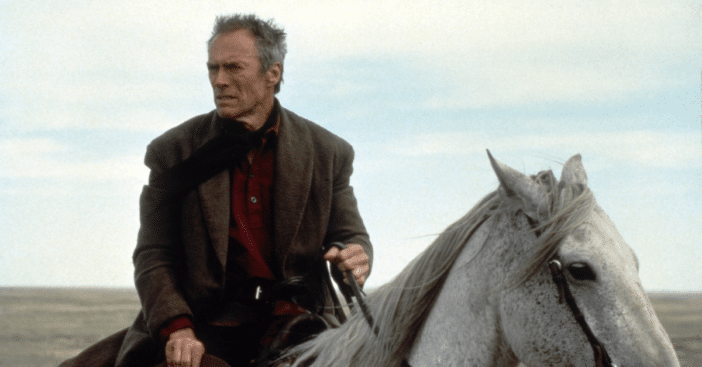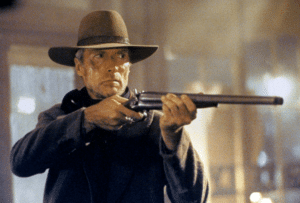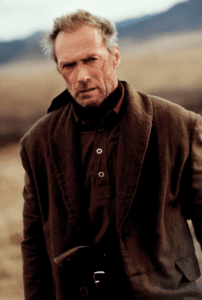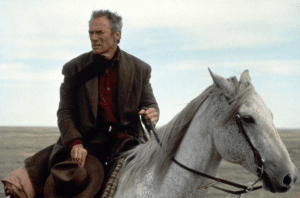
Working in the industry since the 1950s Clint Eastwood has accumulated a monumental filmography that’s seen him working on both sides of the camera. As a result, there’s a lot to sift through when choosing his best… anything. Emotional expression. Stunt work. Composition. Directing. But one of Eastwood’s best lines of dialogue isn’t one of his iconic, oft-repeated quotes, but something completely different—and for a very profound reason.
After clawing his way into the spotlight in earnest, Eastwood became a force in the film industry thanks to Sergio Leone’s Dollars Trilogy of Spaghetti Westerns. He became synonymous with the genre and explored areas of it that were often overlooked—or outright avoided. So, it makes sense that one of his best lines comes from this trend of his to deconstruct the Western genre and leave viewers with something to ponder during the next gunfight they watch.
Clint Eastwood’s best line of dialogue comes packed with wisdom

Collider has taken a good look at the best lines in Eastwood’s long list of scripts. As soon as he began having a say in how Western films unfolded, the genre went in a new direction; regulars like John Wayne favored morally pure heroes who would never even shoot an opponent in the back. Eastwood’s heroes are riddled with mistakes, sins, imperfections, and regrets.
This has given his main characters plenty of chances for introspection—and insight, both for the characters and the viewers alike.
As a result, Collider turned to 1992’s Unforgiven as the ultimate deconstruction of the Western genre and the source of Eastwood’s best line of dialogue. In keeping with his characterization trends, Eastwood’s William Munny is a hell-raising outlaw, destined for that fabled one final job. In the outlet’s analysis of the script, Collider gives special mention to the line, “It’s a hell of a thing killing a man. You take away all he’s got, and all he’s ever going to have.”
Redefining the Western landscape

The glory of the gunfight, a triumphant ride into the sunset, winning enough to see one more day. That is what a brawl typically brings to mind. But, Collider posits, Eastwood’s nugget of wisdom here is uniquely universally applicable not just to Unforgiven but to all Westerns.
The context of the scene is also the apex of everything Eastwood has ever sought to do with the genre in the first place. The gunslinger known as the Schofield Kid had just taken a life, but the experience left him visibly rattled to his core.

It’s not long before the Schofield Kid admits to not being some zealous, hardened, stony-faced killer, but rather just a regular guy who had idolized local legends, legends that left out the part where a shooter needs to live with the idea of taking a life, of being responsible for the end of something that took so much time and effort to build. It’s usually unsaid, but this is situation that many might find themselves in; it’s easy to be awed from a distance and to daydream. It’s another thing entirely to live up to that nonexistent stoicism in the face of life-ending violence.
The reality of the situation is something Munny lays out for the Schofield Kid when he says what a hell of a thing it is to kill a man, to end all he was and all he ever will be. It’s an admission of the full extent of the damage done by the people Eastwood follows in each of his films, and shows he does not shy away from admitting they are flawed from the inside out.
Do you agree with Collider’s assessment?
